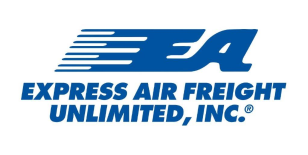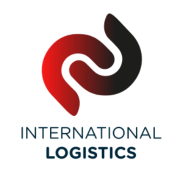Time:2024-03-04 Publisher:Kevin Num:8361

In the realm of modern commerce, the seamless movement of goods is not just a logistical necessity but a competitive advantage. E-commerce's rapid growth has heightened customer expectations for faster deliveries and flawless order fulfilment. In response, businesses are turning to advanced technologies to optimise their logistics operations. One such technology making waves in the industry is Carrier Management Software. This article delves into the intricate workings of this software, its transformative impact on logistics, and how it's reshaping the landscape of supply chain management.
What is Carrier Management Software:
Carrier Management Software stands as a beacon of efficiency in the complex world of logistics. At its core, it is a robust tool that empowers businesses to streamline their carrier relationships and logistics operations. By providing a centralised platform, it automates processes, reduces manual work, and enhances the overall efficiency of the supply chain.
Core Functions of Carrier Management Software:
At the heart of Carrier Management Software lie several key functionalities aimed at optimising logistics operations:
Automated carrier selection: Businesses can effortlessly choose the most cost-effective and reliable carriers for each shipment.
Rate management: The software facilitates comparing and negotiating rates with different carriers, ensuring the best deals.
Shipment tracking: Real-time visibility into the movement of goods allows for proactive decision-making and customer communication.
Carrier performance analysis: Evaluation of carrier performance based on various metrics enables informed decision-making regarding carrier partnerships.
How can carrier management redefine logistics?
Carrier Management Software is a catalyst for change, redefining the traditional paradigms of logistics. By streamlining processes and automating tasks, it improves operational efficiency, reduces costs, enhances customer service, and boosts competitiveness. Businesses equipped with this technology gain a strategic edge by offering efficient and reliable logistics services, meeting and exceeding customer expectations.
Centralised Data Storage Platform:
Centralised data storage emerges as a cornerstone of efficient logistics management. By consolidating various data points related to carriers, rates, shipments, and performance onto a single platform, businesses gain unprecedented insights and control over their operations. This centralised approach streamlines processes, enhances efficiency, and facilitates informed decision-making.
Automatic Order Allocation:
Automatic order allocation revolutionises order fulfilment processes by leveraging algorithms to assign orders to carriers based on predefined parameters. This automation eliminates manual intervention, accelerates order processing, and enhances customer satisfaction. With the software's ability to quickly analyse and allocate orders, logistics operations become more streamlined and responsive to customer needs.
Catering to Diverse Customer Needs:
In today's market, offering multiple delivery options is paramount to meet the diverse needs of customers. Carrier Management Software facilitates this by integrating with various carriers and providing real-time tracking of shipments. This flexibility allows customers to choose delivery methods and timeframes that align with their preferences, enhancing their overall shopping experience and fostering loyalty.
Enhanced Visibility & Tracking Features:
Real-time tracking and monitoring capabilities offered by Carrier Management Software drive transparency and customer satisfaction. By providing accurate and updated information on shipment whereabouts, businesses can make informed decisions, ensure timely delivery, and mitigate risks. Additionally, detailed carrier information consolidated on the platform empowers businesses to assess performance and address any issues promptly.
Automating Documentation Processes:
Streamlining shipping document generation is another area where Carrier Management Software shines. By automating the generation of shipping documents and offering customizable templates, businesses save time, reduce errors, and ensure compliance with carrier and customs requirements. Furthermore, automatic notifications to carriers facilitate timely pickups, enhancing coordination and efficiency.
Efficiency in Returns Processing:
Efficient returns management is vital in maintaining customer satisfaction and optimizing inventory management. Carrier Management Software, equipped with intelligent algorithms, automates the allocation process for return orders. This automation minimizes delays, reduces errors, and accelerates the return-to-shelf cycle, ultimately enhancing customer experience and operational efficiency.
Integration and Collaboration:
Seamless integration with e-commerce platforms and marketplaces empowers businesses to manage their shipping operations from a unified platform. Furthermore, global carrier connectivity enables businesses to choose the best carrier for their specific needs, whether based on cost, delivery time, or special requirements. This integration fosters global reach, customer satisfaction, and opportunities for market expansion.
Conclusion:
In conclusion, Carrier Management Software stands at the forefront of logistics innovation, revolutionizing the way businesses manage their supply chains. By centralizing data, automating processes, and enhancing visibility, this technology empowers businesses to streamline operations, reduce costs, and deliver superior customer experiences. As e-commerce continues to evolve, embracing Carrier Management Software is not just a choice but a necessity for businesses looking to thrive in the competitive landscape of modern commerce.
FAQ:
1. What is Carrier Management Software, and how does it benefit businesses?
Carrier Management Software is a powerful tool that allows businesses to effectively manage and streamline their carrier relationships and logistics operations. It serves as a centralized platform for automating processes, reducing manual work, and improving supply chain efficiency. By integrating this software into their operations, businesses can gain better control over logistics processes, optimize carrier selection, track shipments in real-time, and analyze carrier performance. Ultimately, it leads to cost savings, enhanced customer service, and increased competitiveness in the market.
2. How does Carrier Management Software improve order fulfillment processes?
Carrier Management Software enhances order fulfillment processes through features like automatic order allocation and multiple delivery options. The software automates the assignment of orders to carriers based on predefined parameters, eliminating manual intervention and accelerating order processing. Additionally, by offering customers multiple delivery options, businesses can cater to diverse needs and preferences, thereby enhancing the overall shopping experience and fostering customer loyalty.
3. Can Carrier Management Software facilitate efficient returns processing?
Yes, Carrier Management Software can significantly improve returns processing efficiency. With intelligent algorithms, the software automates the allocation process for return orders, considering variables such as proximity to the return location, carrier availability, and delivery time preferences. This automation minimizes delays, reduces errors, and speeds up the return-to-shelf cycle, ultimately enhancing customer satisfaction and optimizing inventory management.
4. How does Carrier Management Software ensure data security and compliance?
Carrier Management Software employs robust measures to ensure data security and compliance with regulations. Through centralized data storage, sensitive information related to carriers, rates, shipments, and performance is consolidated in a secure platform, reducing the risk of data breaches. Additionally, the software offers customizable templates for shipping documents, enabling businesses to include company logos, branding, and any additional information required by carriers or customs authorities while ensuring compliance with regulatory requirements.



